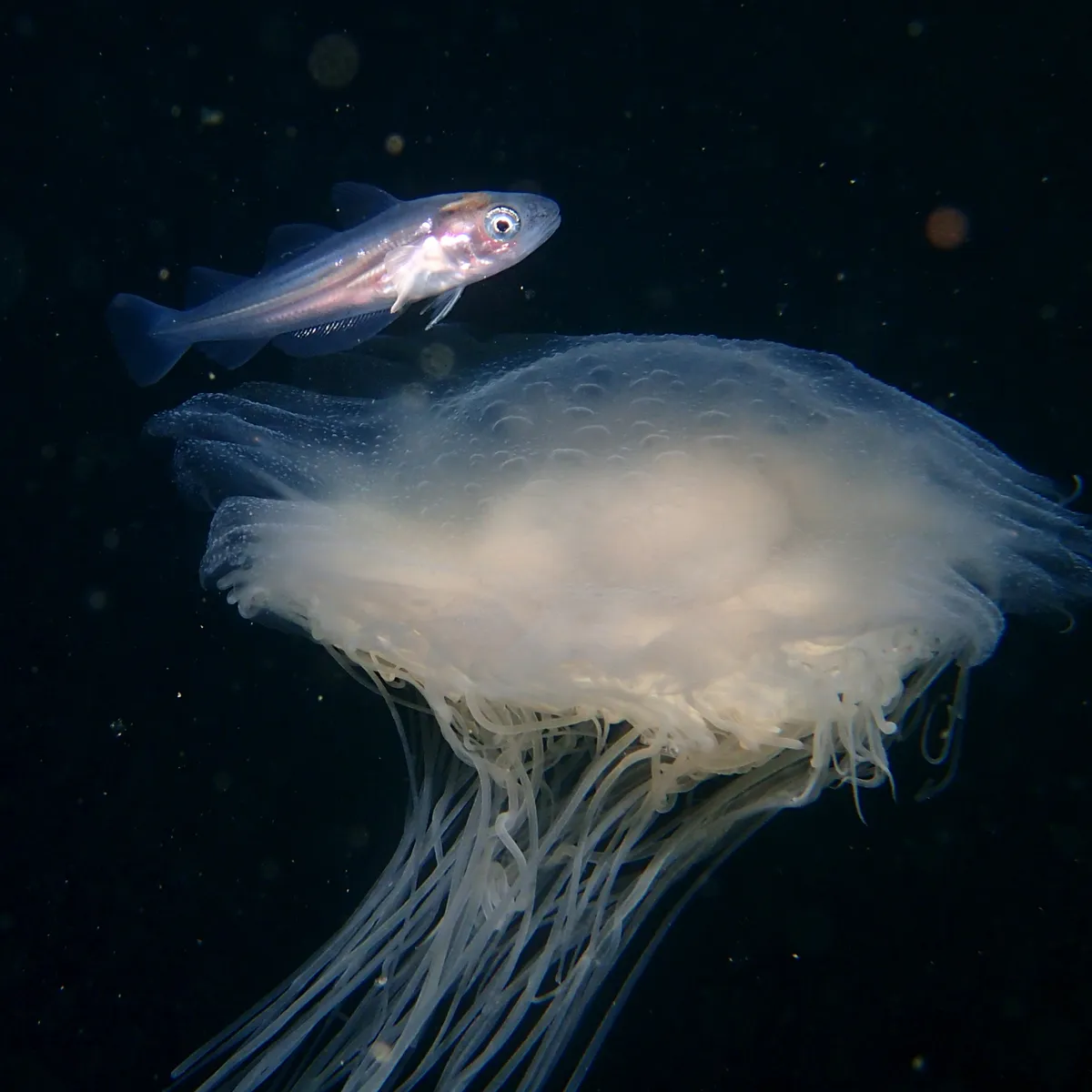Scientists at Queen’s University, Belfast, have discovered that jellyfish are providing habitat and space for developing larval and juvenile fish.
The fish use their jellyfish hosts as means of protection from predators and for feeding opportunities, helping to reduce fish mortality and increase recruitment.
Jellyfish have long been described as ‘arguably the most important predators in the seas’, competing with adult fish for food, or by preying on eggs and larvae to reduce survivorship and recruitment of fish stocks, but the research suggests they might be much more beneficial to marine life than previously thought.
“Upon discovering that jellyfish are an important food sustenance as well as providing shelter, we thought it apt to compare them to ‘the gingerbread house’, depicting their dual benefit as a house you can eat,” says Dr Jonathan Houghton, senior lecturer at Queen’s University Belfast.
“The significance of the associations between fish and jellyfish really cannot be underestimated,” he adds. “Our findings indicate that a huge range of fish rely on jellyfish to survive, whether this is to protect themselves from predators, to gain sustenance, or both.”

In the study, two thirds of the fish species found to ‘partner up’ with jellyfish were of commercial value, and often recovering from long term-stock depletion.
This has huge implications, not only for the food chain but also for the global fishing industry, which has an estimated value of $362 billion (USD).
“The sheer number of fish-jellyfish associations documented all across the globe may surprise some, but considering young, juvenile, otherwise vulnerable fish are getting shelter and food from the interaction for free, maybe we should be surprised there aren’t more examples out there,” comments lead author Mr Donal Griffin, a researcher at Queen’s University Belfast.
The research also highlighted that association with jellyfish may have pre-empted a habitat shift in some species with fish moving over evolutionary time from open water habitats to life at the seabed, or even coral reefs.
Dr Houghton adds: “Our perception of jellyfish has switched hugely, thanks to recent research. It’s almost a reboot of jellyfish ecology as a central part of the ocean system. There is now a pressing need for further research to better understand the relationship and inter-dependencies between jellyfish and fish. That way we can see their value as well as their limitations.”
Read the full paper in the Proceedings of the Royal Society B.
